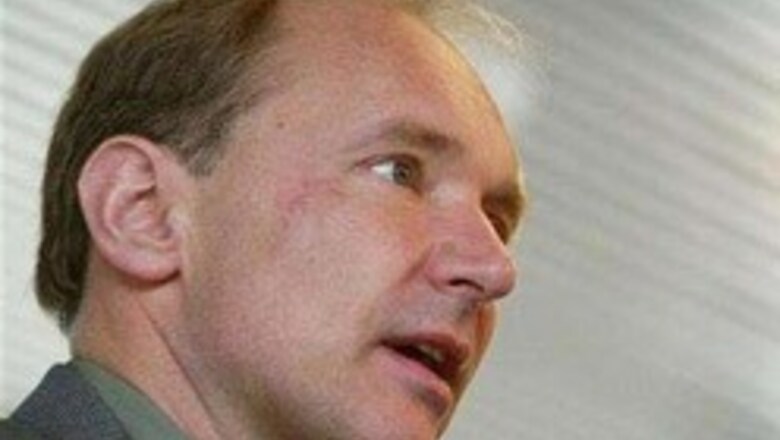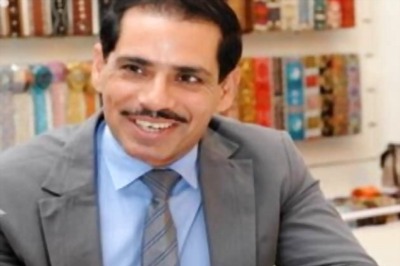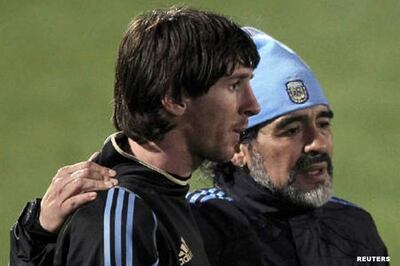
views
Amsterdam: The World Wide Web is on the cusp of making its next big leap to become an open environment for collaboration, and its inventor said he has not been so optimistic in years.
Still, Tim Berners-Lee, the Briton who invented and then gave away the World Wide Web, warns that Internet crime and anti-competitive behaviour must be fought tooth and nail. A lot of new technology is becoming available after many years to make the Web smarter and easier to use, he said.
"My personal view is that a lot of it is coming together now. That is very gratifying to see ... I'm very optimistic at this moment," Berners-Lee said in a telephone interview ahead of the annual World Wide Web conference, which opens in Edinburgh on Monday.
"The whole industrial environment is more exciting. We had the bubble and the burst, but now you see a low of young companies again. There's renewed enthusiasm among VCs (venture capitalists) to invest in start-ups. I get a feeling of upsurge in activity."
Roughly twice as much money is being invested in European Internet start-ups than the figure two years ago, according to venture capitalist community Tornado-Insider.
"Four years ago, the patent problems were getting in the way. A lot of us were worried, because it looked like the whole thing could get bogged down," Berners-Lee said, referring to attempts by private companies to patent software needed on Web sites and charge royalties for usage.
Thanks to the help of many, royalty-free licences are now available, said the man who never saw a cent of royalties for his invention, which set off an industry now generating hundreds of billions of dollars in revenues a year.
PAGE_BREAK
New webpage
Berners-Lee in 1990, while at the European Particle Physics Laboratory CERN in Geneva, designed key parts of the Web to let scientists work together when in different parts of the world.
Currently the director of the World Wide Web Consortium (W3C), which is a US-headquartered forum of companies and organisations to improve the Web, he is only now realising his early vision of a two-way web where people can easily work together on the same page and the content on a page can be recognised by computers.
Some early examples of websites that combine data from different sources include Google Maps, whose geographic maps turn up on other sites combined with services, and photo-sharing site Flickr, where members comment on each other's postings and developers can use the pictures to create new applications.
"Several years ago we said: 'What a shame that we can't go to that website and find all that stuff in there.' We had a loose roadmap five years ago. Steadily we've been making progress," said Berners-Lee, adding that most of the work had been done.
"Of course there are people who say: 'Why didn't Tim do that from the start?' But it's more complicated," he said. Elements are already filtering through, such as Web sites that do not have to be refreshed entirely when only parts are being updated.
A new query language, SPARQL (pronounced "Sparkle"), is designed to make webpages easier for machines to read, allowing all sorts of different data to be put to work on the Web. "SPARQL will make a huge difference," Berners-Lee said. "You can see so many ways the Web is taking off in so many different directions," he said. CONCERNS Berners-Lee is no fan, however, of fenced-off Web areas specially designed for mobile devices such as the new ".mobi" suffix.
He wants websites and devices to be smart enough to figure out what the best way is to present information to consumers. He is also concerned that some Internet providers in the United States have started to filter data, giving priority to premium data for which the operator receives an additional fee.
They can do this, because they own the cables, the service, the portals and other key applications. "The public will demand an open Internet," he said. On his blog, at http://dig.csail.mit.edu/breadcrumbs/blog/4, Berners-Lee pays homage to the designers of the Internet who decided that all data packets were created equal.
"I tried then to make the Web technology, in turn, a universal, neutral platform." Another element of concern to Berners-Lee is "spam in general and particularly phishing", referring to criminals trying to fish for credit card details and other private data.
Websites have to be much clearer in showing consumers that they are safe, he said.
"Now if a website exchanges a certificate, a little lock appears but it does not tell you that. A consumer is not aware of it and may be at a site that looks official but may not be his bank at all. What you need is a browser that knows what you're connecting to and tells you."



















Comments
0 comment